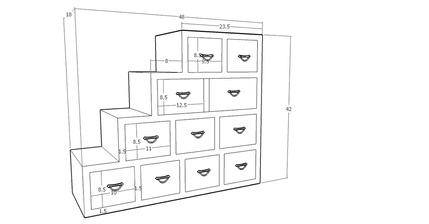Today I placed the order for my tansu steps, made of reclaimed elm burr wood, with no plywood, and no toxic stains or finishes. They are being built for me by Green Tea Designs in Toronto, at a significant discount from the listed price.

I had to make some adjustments to the step heights, but it will be very close to this design. I've ordered two of them, on for each side of the trailer, leading up to my sleeping platform.
 Elm tree.
Elm tree. I had a choice of Elm or Gingko. I decided to go with Elm wood.
 RSS Feed
RSS Feed